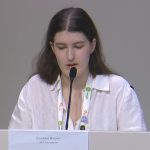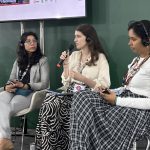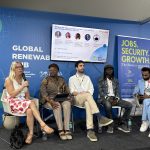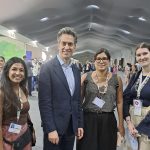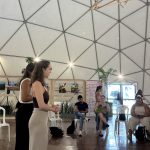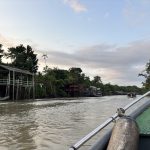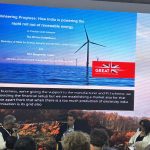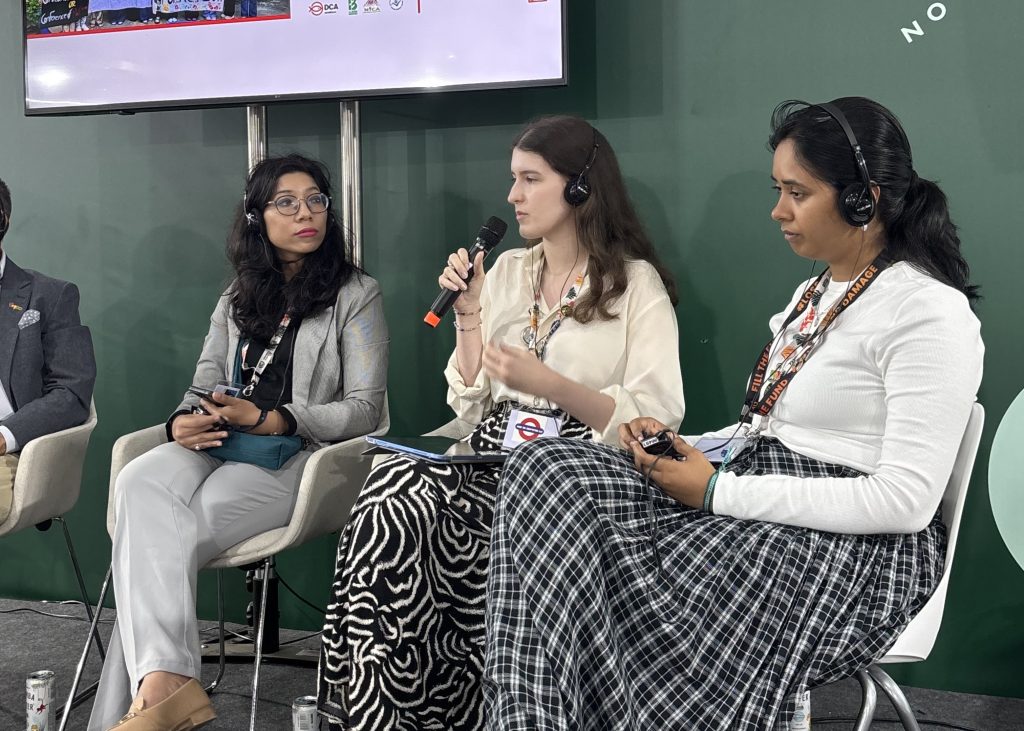
Author: Zvezdana Božović
The second week at the COP started after a Sunday well spent on one of the surrounding islands of Combú, south of the city of Belém. RES Foundation continued its engagements, and week 2 proved to be even more eventful in some ways than week one.
We attended a panel titled “Multi-Level Governance for Urban Climate Action“ where we had the opportunity to hear the presentation of Mr.Vikrant Srivastava, the Co-Chair of the Global Flagship Initiative for Food Security. He presented the Climate Champions Fellowship, a six-month climate leadership and advocacy programme supporting youth driving grassroots climate action in India. Built around a bottoms-up approach and with a focus on closing the finance gap by providing direct financial support to youth-led projects implementing local solutions, this programme provided inspiration on what should also be considered as good practice to implement in the Western Balkan region. The emphasis on capacity building and community-driven action was particularly inspiring.
At the fireside chat “Pioneering Progress: How India is Powering the Rapid Rollout of Renewable Energy“, at the UK Pavilion, we had the honour of hearing insights from the Rt Hon Ed Miliband, the UK Secretary of State for Energy Security and Net Zero and Shri Bhupender Yadav, the Indian Minister of Environment, Forest and Climate Change. The two high-level speakers discussed India-UK collaboration on renewable energies, insights into their efforts to scale up clean energy and lessons learned and future outlooks on the expansion of this field and its economic opportunities. Another highlight was meeting the Rt Hon Ed Miliband later in the day with colleagues from Generation Climate Europe.
Throughout the second week, actions organised by civil society to draw attention to the urgent need to phase out fossil fuels were getting more frequent and louder as the pressure of the delivery of the final result drew closer. Colourful signs calling for an end to subsidies for fossil fuels, a rapid fossil fuel phase-out, stronger climate ambitions and accountability were seen all around, and the voices of the protestors rang through the hallway where the negotiations were in full swing and carried out into the rooms where countries were working, often overtime, to secure results agreeable (or at least acceptable) to most actors.
At the event organised at the Free Zone in the center of Belém titled “How Young Voices Can Shape Climate Decisions“ co-hosted by Generation Climate Europe and COJOVEM, a local organisation from the city, guest speaker and Austrian MEP Lena Schilling gave an inspiring speech and told the story of her path into politics and the power of youth. Her story showed that it is never too early or indeed, too late to make one’s voice heard in local, regional or even global political processes.
At the Global Renewables Hub, we attended a panel titled “Bridging the Gaps: Lessons from GST 1.0 and Planning for a Stronger and Fairer GST 2.0“ organised by the Global Renewables Alliance. One of the speakers, Diána Ürge-Vorsatz, the Vice-Chair of the IPCC, spoke of the current challenges vis-à-vis the alignment of IPCC assessment cycle timelines with the GST 2.0 process, and the test it poses for evidence-based decision-making. Mr. Malang Sambou, the lead negotiator on the Mitigation Work Programme (MWP) and Just Transition for the Gambia, outlined local perspectives from his country and the challenges faced in the negotiations for advancing on these agenda points. An interview with Mr. Sambou with RES Foundation will be published soon on our website.
At the panel titled “Youth Role in Climate Justice“, Zvezdana Božović of RES Foundation had the opportunity to speak on how national and local policies can ensure justice for most climate-vulnerable groups while balancing national priorities, and how youth and local communities can be empowered as key advocates for climate justice at COP30 and beyond. She underlined that identifying vulnerable groups is a first step to their inclusion in the policymaking process, and that this requires robust data collection at a local level, and that another challenge posed to meaningful inclusion of vulnerable groups is the lack of green jobs, particularly for youth, in this sphere.
She also highlighted that attaching a “youth“ label to a young person often undermines their expertise and credibility due to prejudice or tokenization, specifying that young people should be taken seriously as experts, professionals, scientists and advocates without using age as the principal measure of their perceived competence, or lack thereof. She also added that a good example is the age diversity of the team at the RES Foundation, which meaningfully includes young people among its staff.
At RES Foundation’s press conference titled “Taking Stock of Needs and Progress in Youth-led Energy Projects“, co-organised with European Youth Engineers (EYE) and the YOUNGO Energy Working Group, Zvezdana Božović highlighted that transport poverty and decarbonization remain as key challenges for youth, low-income households and rural communities, and that the Foundation is committed to strengthening the evidence base through data-driven insights and policy frameworks to uplift these groups. She presented the Foundation’s vision of citizen energy communities, where individuals become active energy citizens, and not passive consumers, taking this opportunity to announce upcoming projects.
Some planned engagements could not take place due to the unfortunate fire incident at the COP30 venue, but the evacuation was efficient with no major incidents or injuries, and negotiations resumed the following day, going into overtime over the weekend and finally concluding on Sunday.
COP30 concluded with the adoption of the “global mutirão” package, a broad compromise text that called for tripling adaptation finance, though only by 2035, later than many had hoped. It also launched new processes such as the Belém Mission to 1.5°C, alongside measures to track adaptation progress and advance work on just transition and Article 6 mechanisms. Despite intense all-night negotiations, countries failed to agree on a formal fossil-fuel roadmap, instead settling for voluntary processes outside the UNFCCC framework, reflecting ongoing divisions between parties.
Gallery (credits: Zvezdana Božović)


